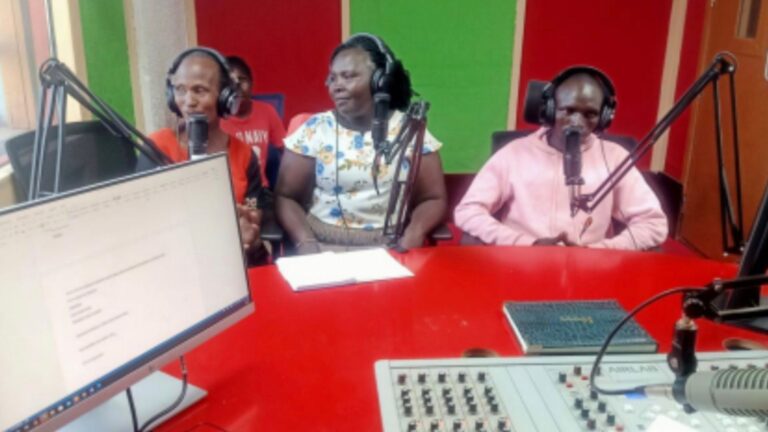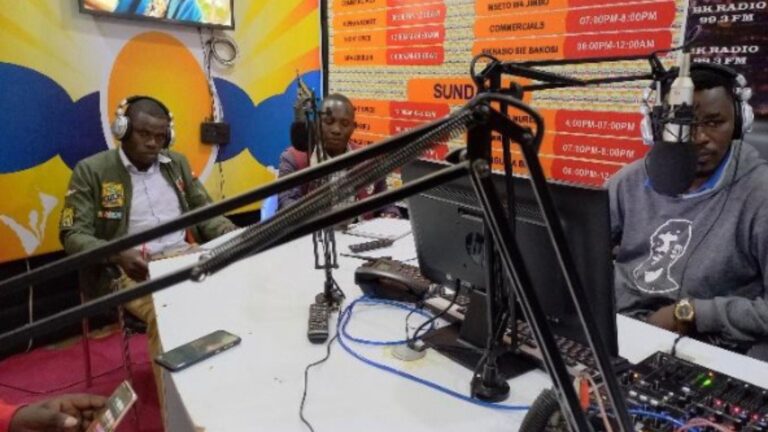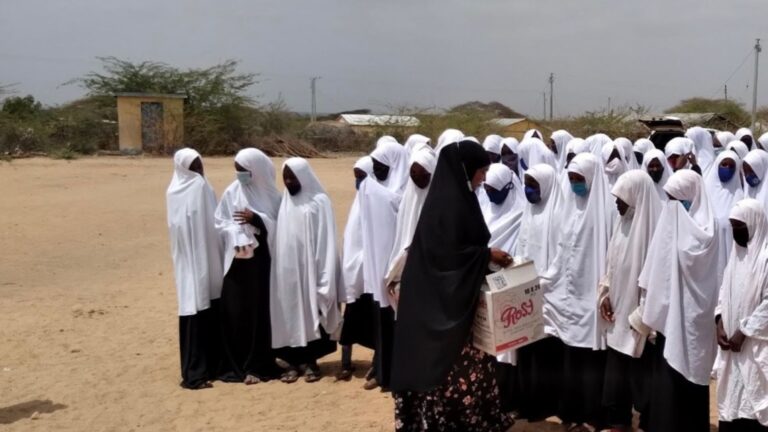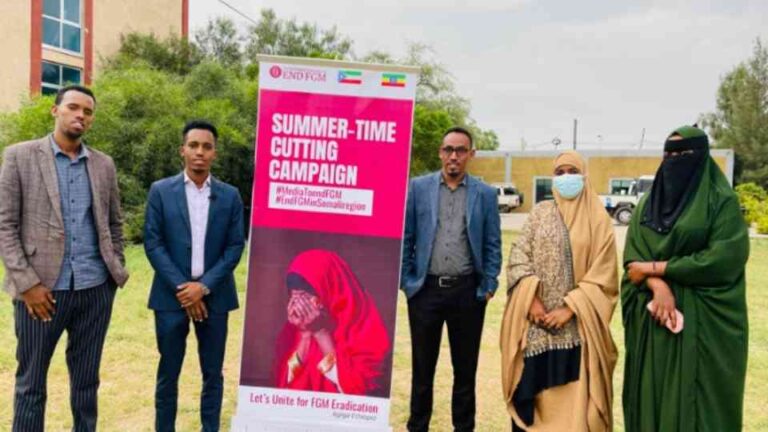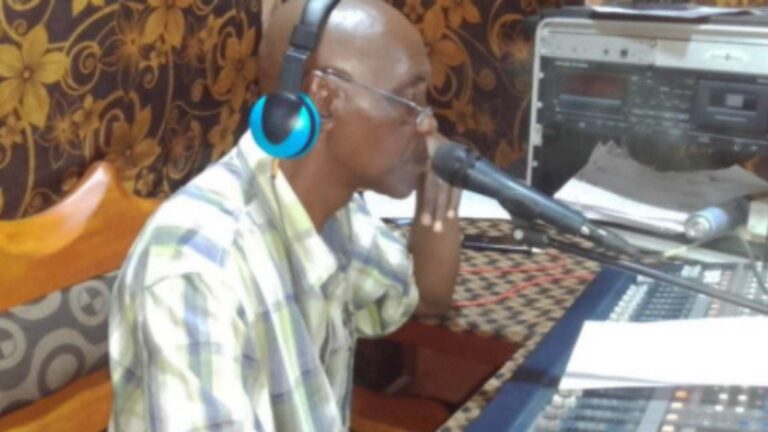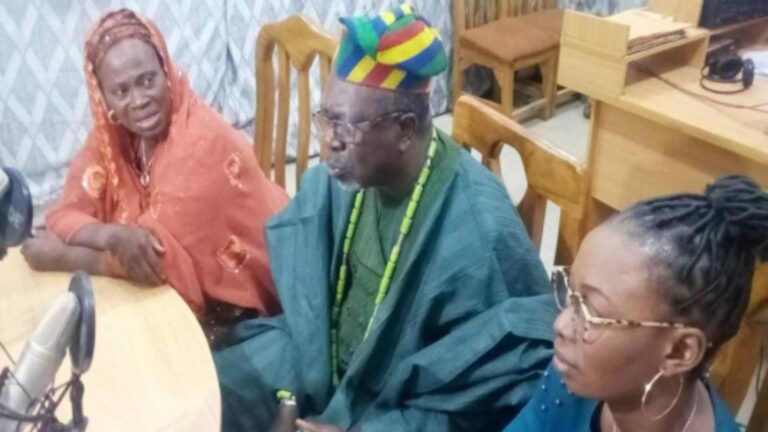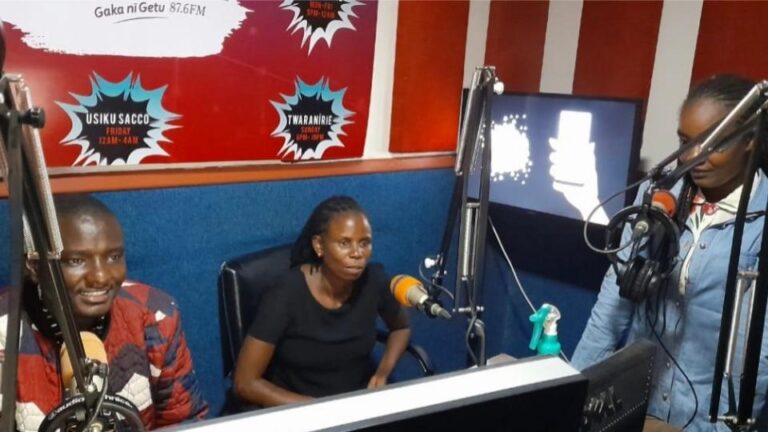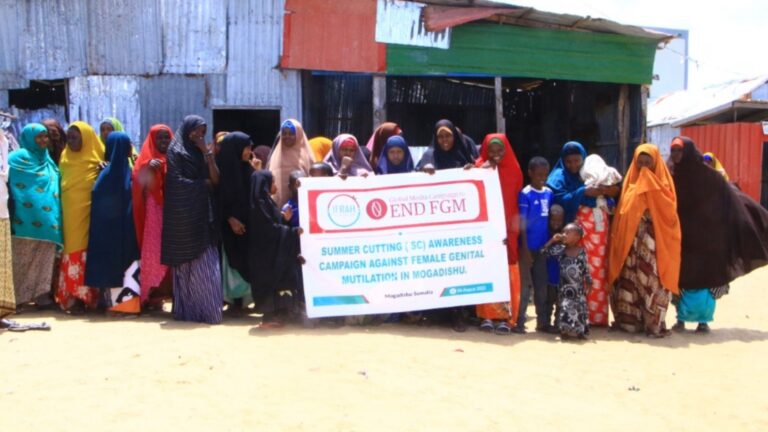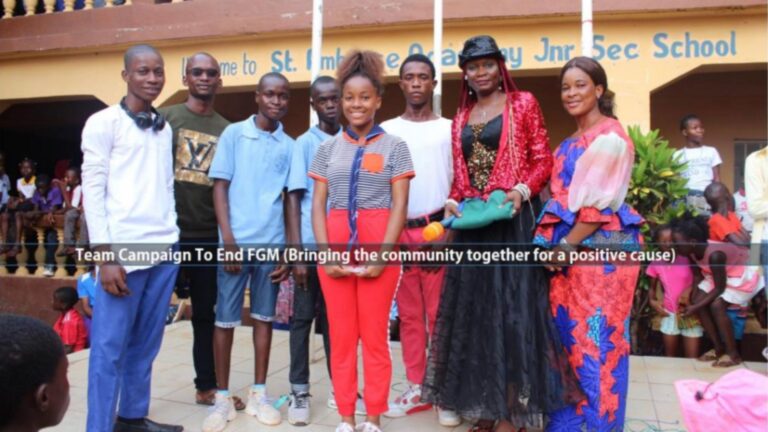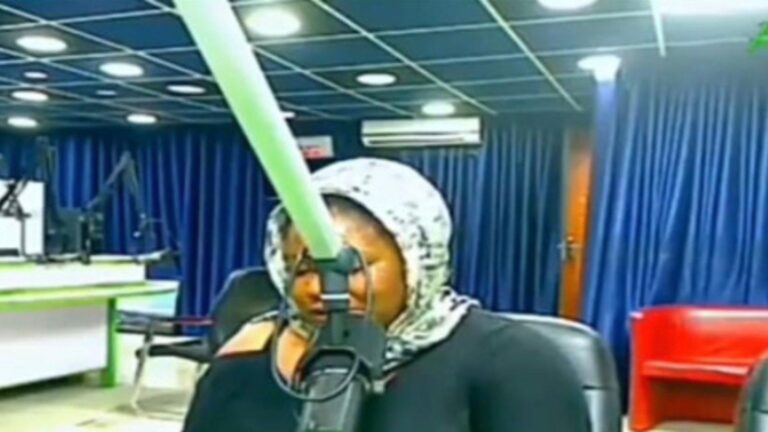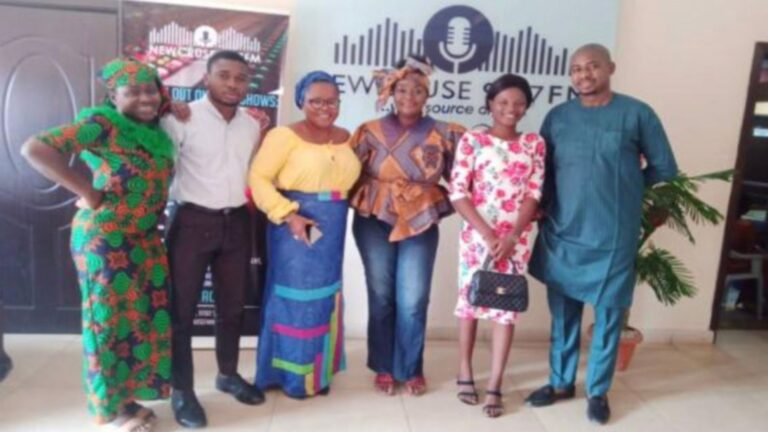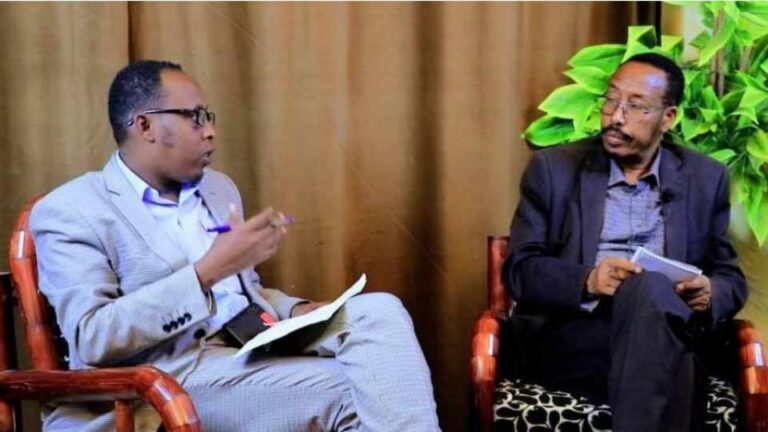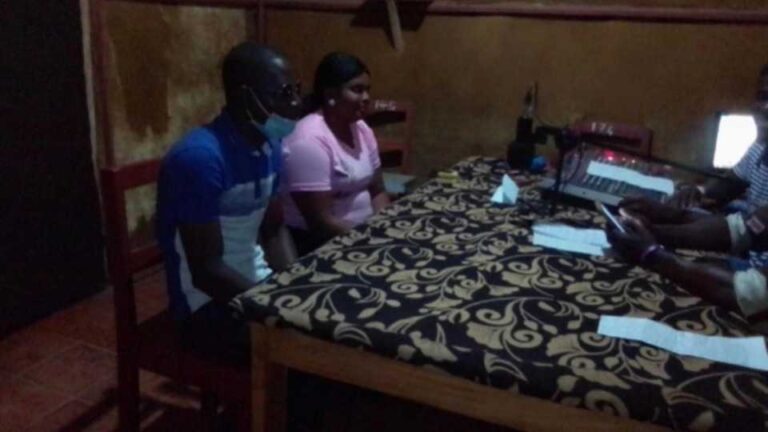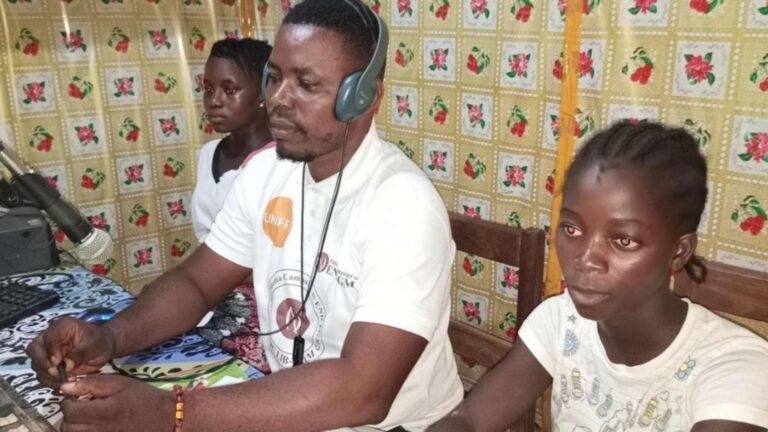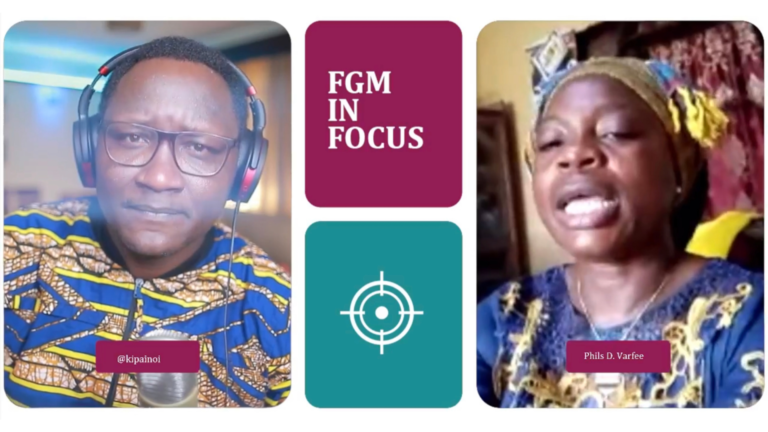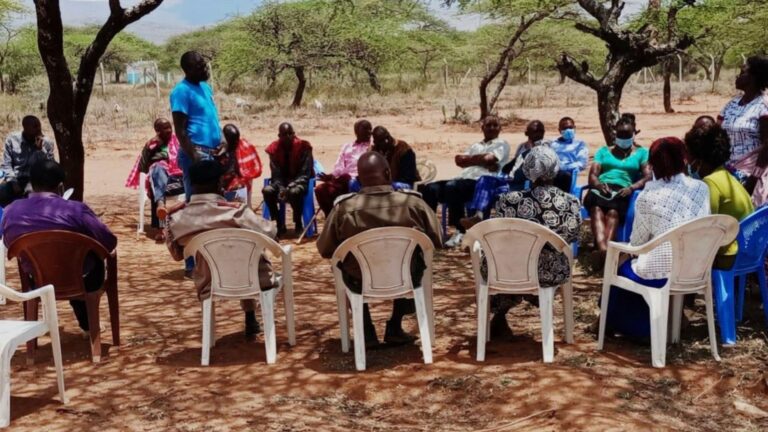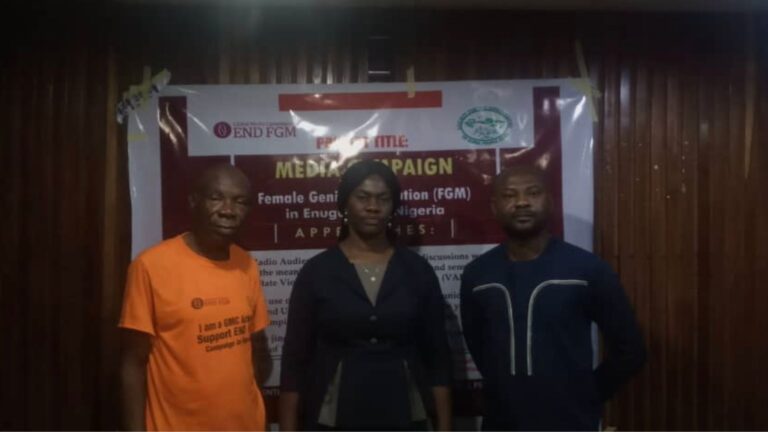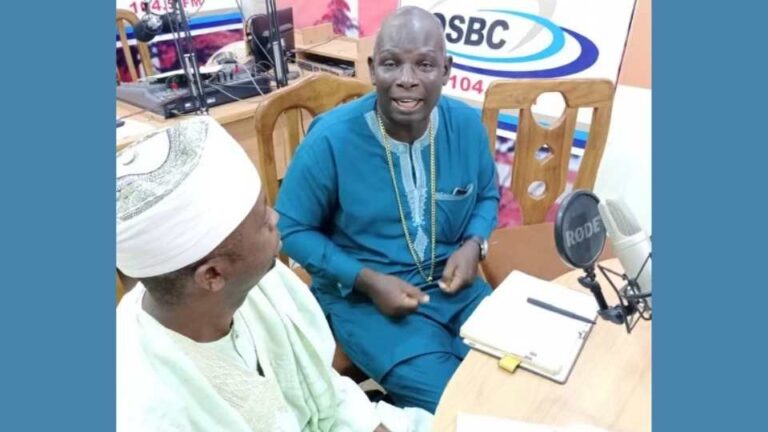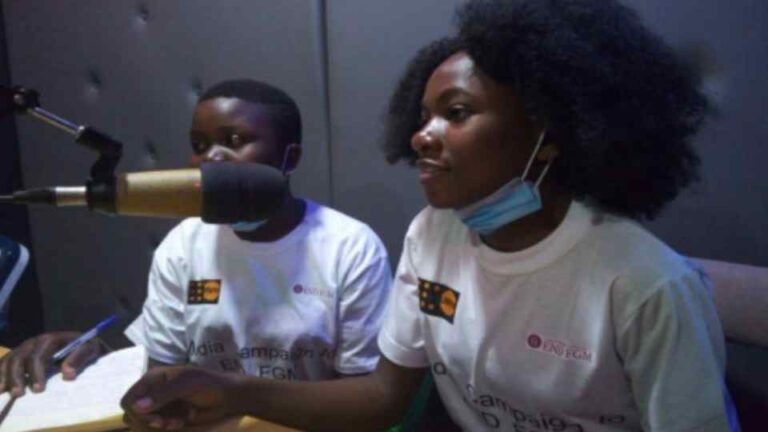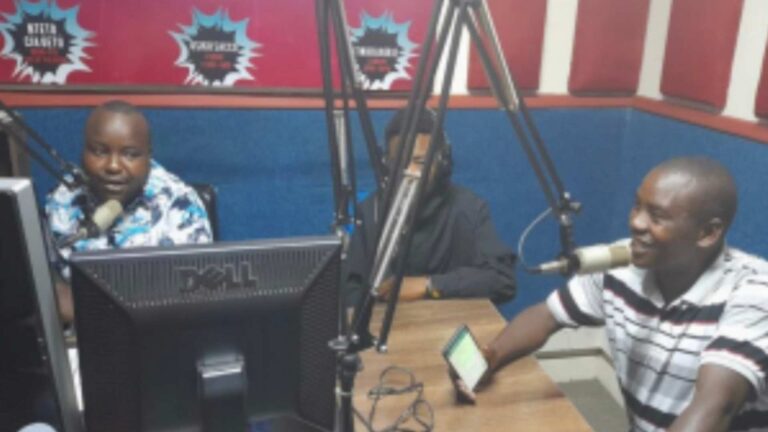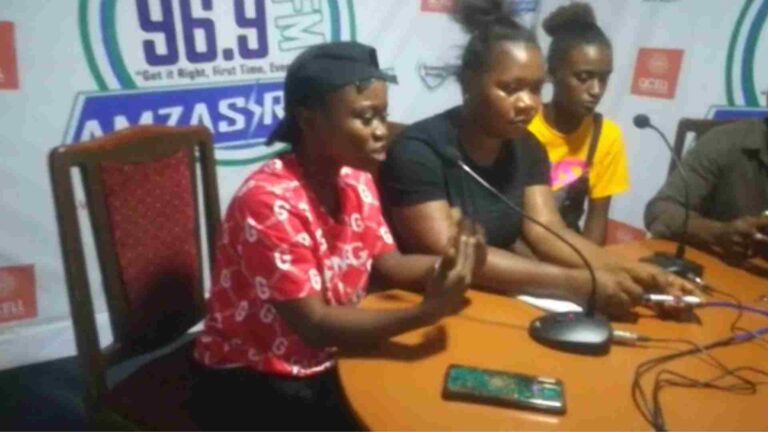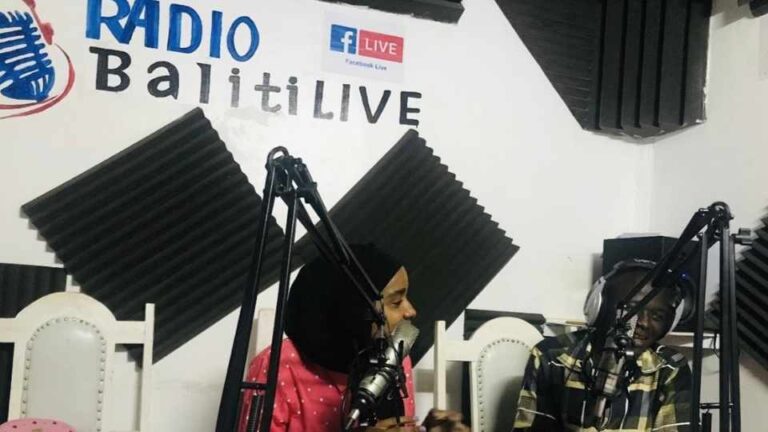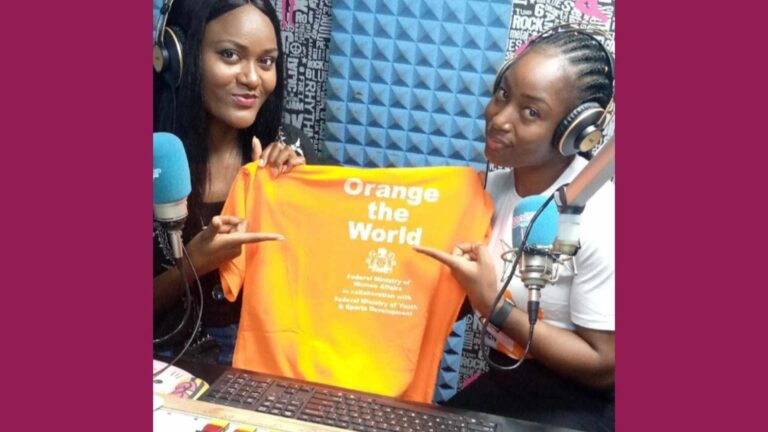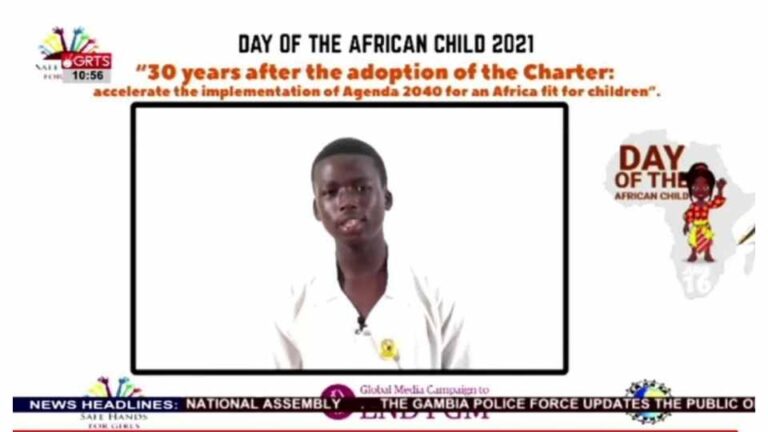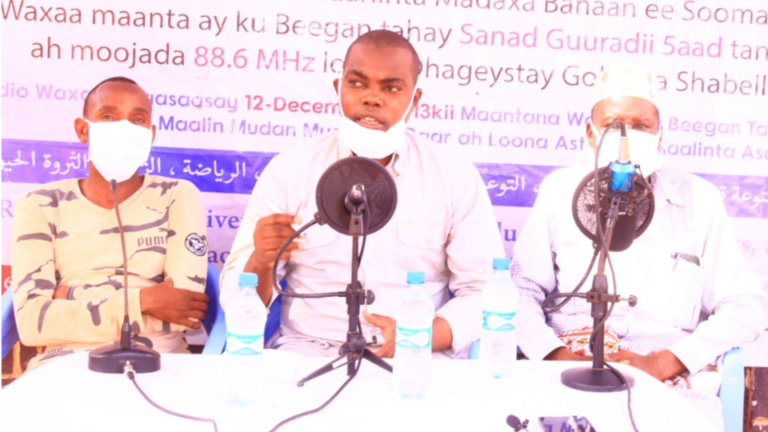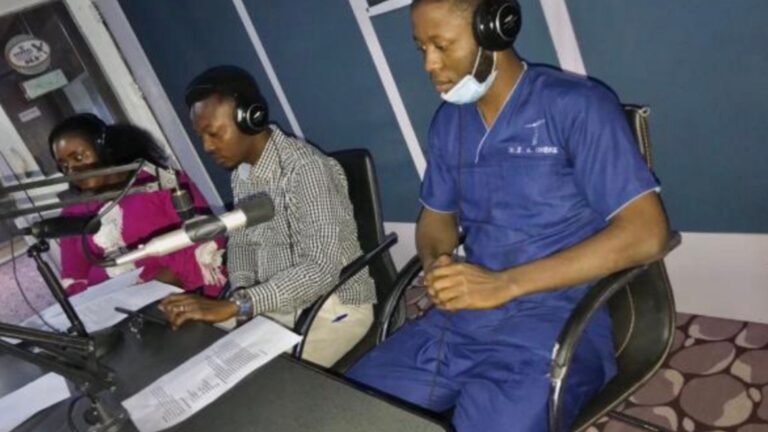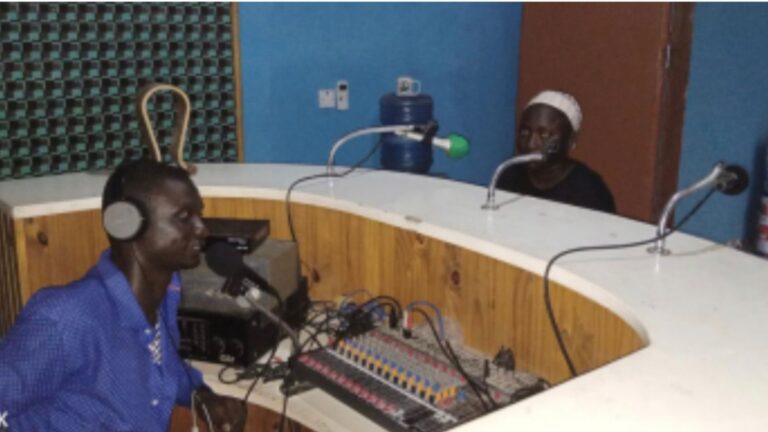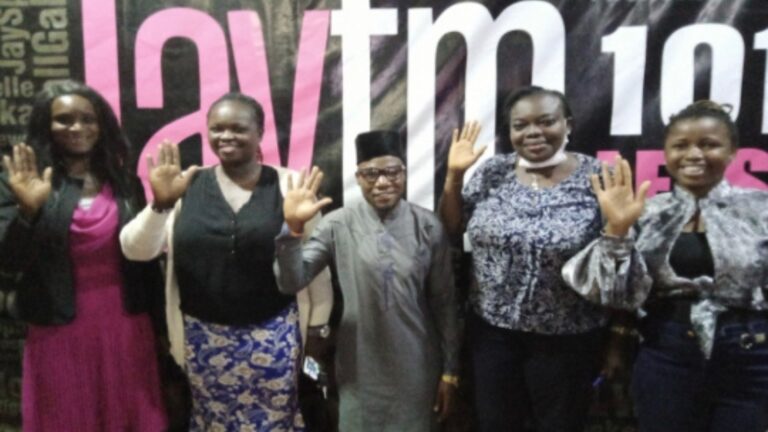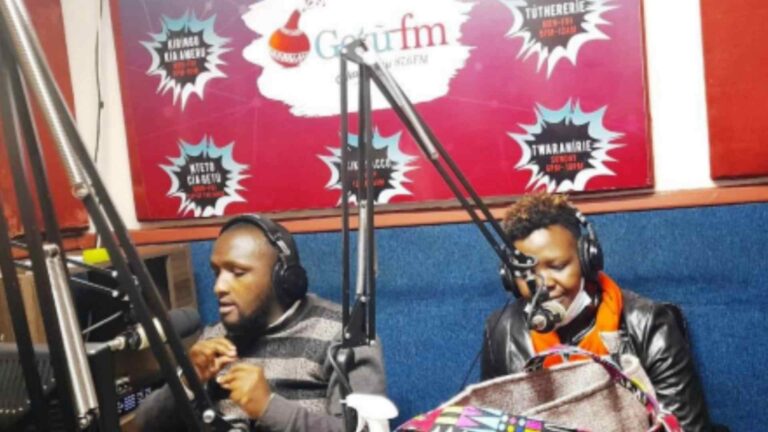By Domtila Chesang,
The project:
Our project was both media and community engagement activity, we involved North Rift Rift Radio in our media campaign and our local surveillance group in Otiot village in Marus sub-location for sensitization. The reason why we engaged North Radio is that it is the most listened to radio station in West Pokot and the most popular in places where we work with high FGM/CM prevalence.
We conducted community sensitization, an activity that brought together men, women, religious leaders, teachers, local administration survivors of FGM, and reformed cutters. The reason we brought this team together was to strengthen the campaign in the villages and have the cutters make a public declaration that they had abandoned the cut. The main purpose was to have a coordinated campaign to end FGM and spark the conversation among different groups who also are the key stakeholders in their communities.
Our media campaign enabled us to continue reinforcing our work across the community through the most popular radio and as a way of getting reports from the community on how the situation of FGM was in their villages.
From the encouraging messages and reports coming from the many callers that we interacted with during the show, it was clear our campaigns were bearing fruits.
“One caller stated how impactful the campaigns have been and applauded us for choosing to educate the community through the media which is the fastest and most efficient way to reach a wider audience in a short time.” Callers from Rural… Share on X Kama Limo said ‘Please continue to teach the people and don’t tire because it enables those who are facing stigma and pressure to have the courage to either defend themselves or report knowing that they have a support group.’ Share on XThe community surveillance group activity was also equally successful as it brought all the key stakeholders from Mosop location a very notorious FGM hotspot area. The cutters present gave their testimonies of how they have been convinced to abandon FGM because of the consequences they faced and as a result of our campaigns.
In a recorded video, Cheposera said ‘‘I was once arrested and taken to the police station thankfully I had only attempted to cut that time and was in the process of cutting when they caught me. If only I had performed the act, I would be in prison now. So thankfully I have more knowledge on the same and I have vowed never to subject any other girl to the cut’’ The members also thanked us for starting the campaign.
Difficulties encountered:
We have not encountered any major challenges while implementing this project apart from delays that were caused due to the community requesting to postpone the field activity to a later date delaying our reporting period.
Strong messages:
The community was very positive and they acknowledged the importance of radio as a channel of communication.
What stood out by being the most echoed comment was the importance of involving men in the campaign to end FGM.
Mr. Longar reiterated that girls were being cut as a result of peer pressure and stigma pushing married women to undergo the cut.
The stigma was mostly coming from fellow women majority being mothers in-laws and co-wives.
Mwalimu losili said that in his village of Mosop location an incident that took place a few years ago where a dead woman was cut before being buried by her relatives who encouraged FGM.
This was to ensure that the (bad) does not haunt the relatives. This pushed many uncut girls and women to go for the cut for fear of being cut when they are dead.
A strong message that we took into serious consideration is the lack of communication among the community members leading to blanket support of FGM. The women are saying it is the men who encourage FGM while the men are saying it is the women. It needs serious coordination.
Success:
"We were amazed at how far and wide the radio talk shows had reached as some of the callers who called the radio during the show are people from the villages where we work and where FGM takes place. It connected the work on the ground… Share on X ‘In another instance, we even came across local community members who approached us to tell us that they had come to know us and our work through the radio talk shows. This is a confirmation that radios are ideal for the end FGM… Share on XNext time:
If I was to conduct this activity another time, I would ensure that the reformed cutters speak on the radio to give a testimony of how they were convinced to abandon the cut so that their story could be used to inspire others.
Bearing in mind that there are a lot of listeners currently who tune into the local radio which is proving to be a top medium channel there is a need to factor in facilitation for cutters from the village to come and give their stories. This will have a wider impact on the audience which is the practicing community.


